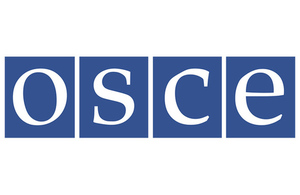Statement on the Moscow Mechanism to the OSCE Permanent Council
Delivered by Mr. Guðni Bragason, Minister Plenipotentiary and Permanent Representative of Iceland in Vienna, on behalf of 16 OSCE Participating States, 1 November 2018.

Mr. Chairman,
I am delivering this statement on behalf of the following delegations: Belgium, Canada, Denmark, Estonia, Finland, France, Germany, Iceland, Ireland, Latvia, Lithuania, the Netherlands, Norway, Sweden, the United Kingdom, and the United States.
On August 30, we informed the Permanent Council about a letter we sent to the Russian delegation to request concrete information under the OSCE Vienna (Human Dimension) Mechanism due to our concerns about credible reports of human rights violations and abuses in Chechnya. The letter of September 4 that we received in response unfortunately did not provide a substantive response to our questions.
This has only deepened our concern that the Russian Federation is unwilling or unable to address the reports of serious human rights violations and abuses, which contributes to a climate of impunity for authorities in Chechnya. We believe that the reported violations and abuses reflect a particularly serious threat to the fulfilment of the provisions of the OSCE human dimension. We therefore are invoking paragraph 12 of the 1991 Moscow Document of the Conference on the Human Dimension of the OSCE (Moscow Mechanism) to establish a mission of experts to address the concerns outlined in our August 30 letter. Those concerns centered around allegations of impunity for reported human rights violations and abuses in Chechnya from January 2017 to the present, including, but not limited to, violations and abuses against persons based on their perceived or actual sexual orientation or gender identity, as well as against human rights defenders, lawyers, independent media, civil society organizations, and others. Among the reported human rights violations and abuses were: allegations of harassment and persecution; arbitrary or unlawful arrests or detentions; torture; enforced disappearances; and extrajudicial executions.
In addition to establishing the facts and reporting on them, we encourage the mission of experts to give advice to the Russian Federation, to the OSCE, and to the international community on possible solutions to the questions raised.
We look forward to working with ODIHR and the Russian delegation in the coming days on arrangements for the mission. An expert mission, one member of which may, in accordance with paragraph 10 of the Moscow Document, be chosen by the government of the Russian Federation, should be able to give an objective and unbiased report and recommendations on these issues.
Thank you Mr. Chairman.